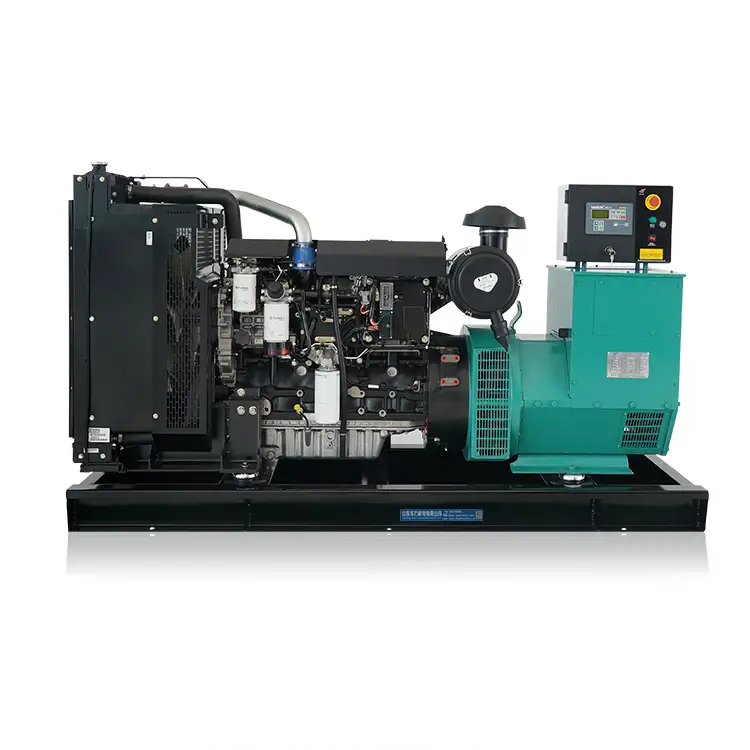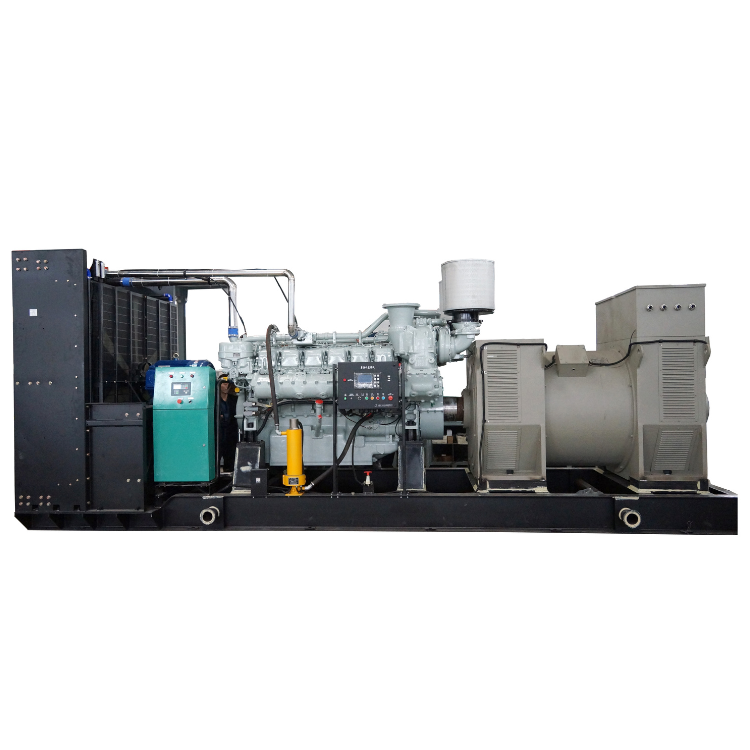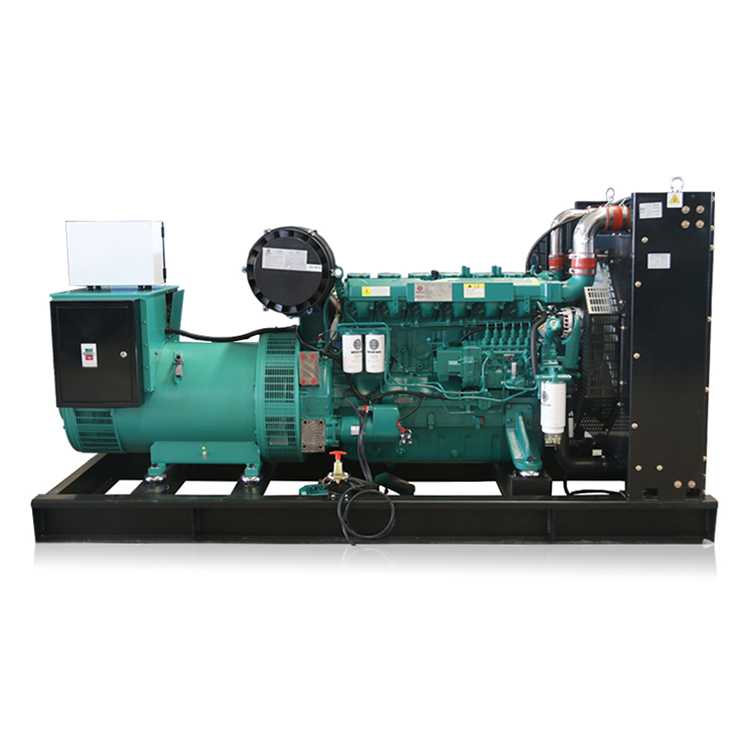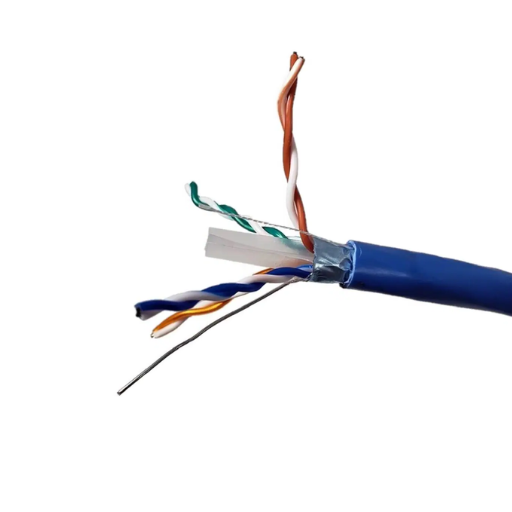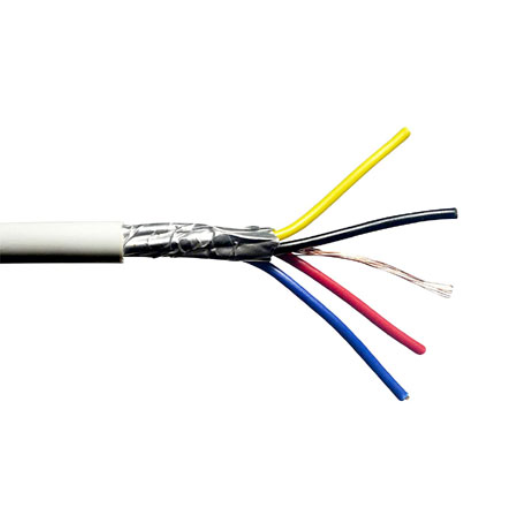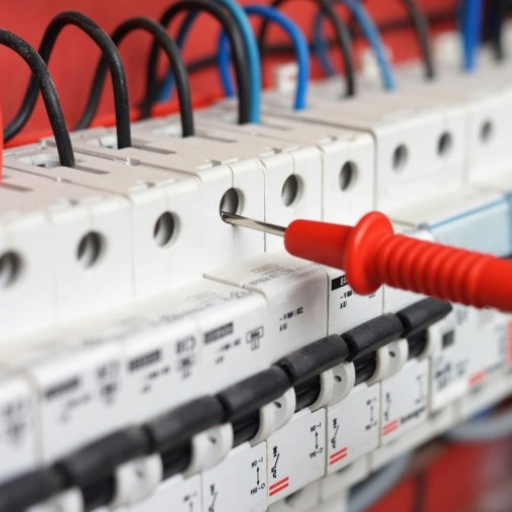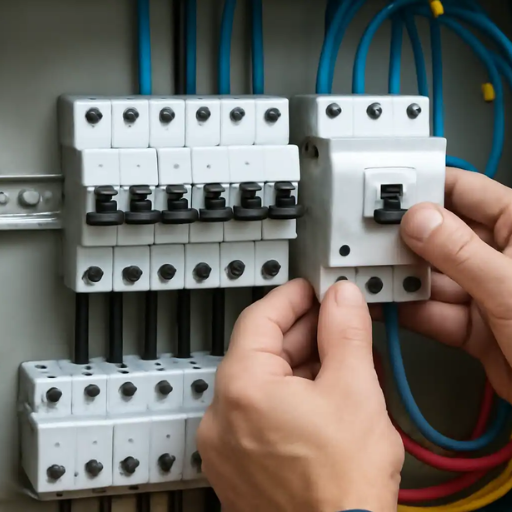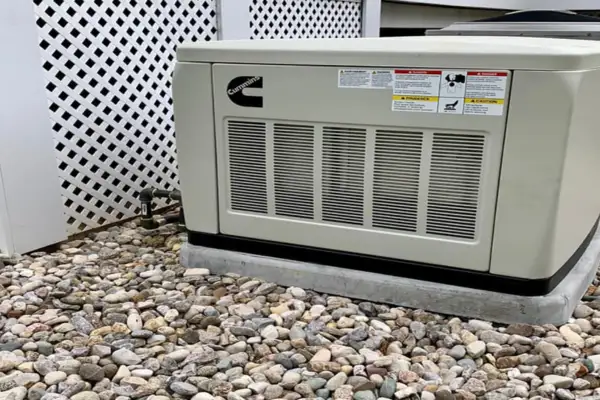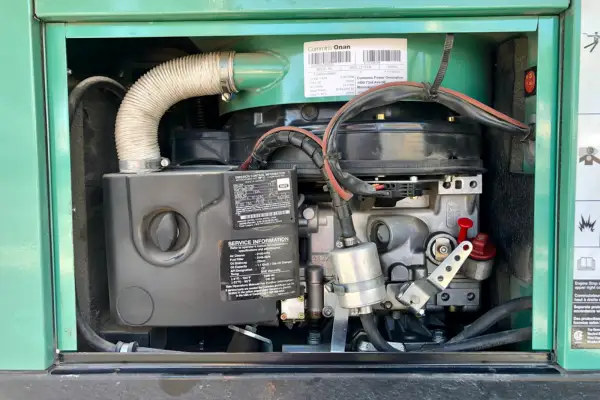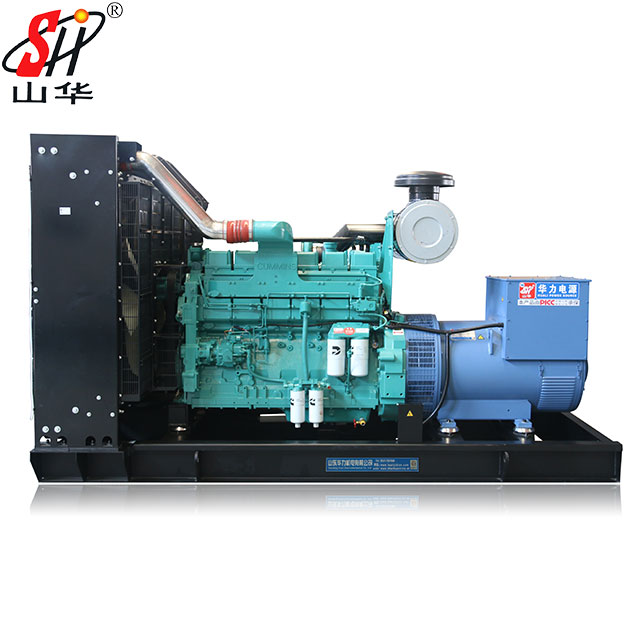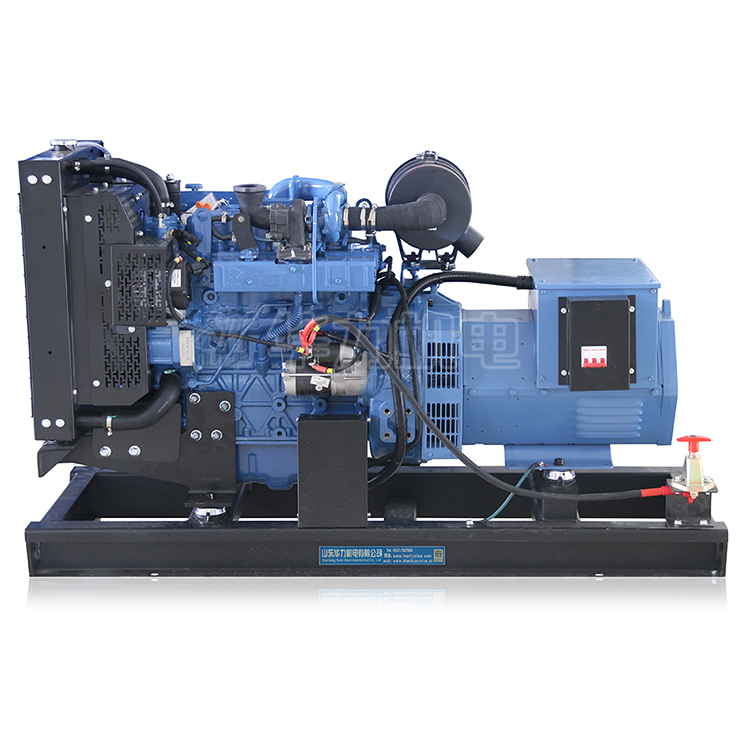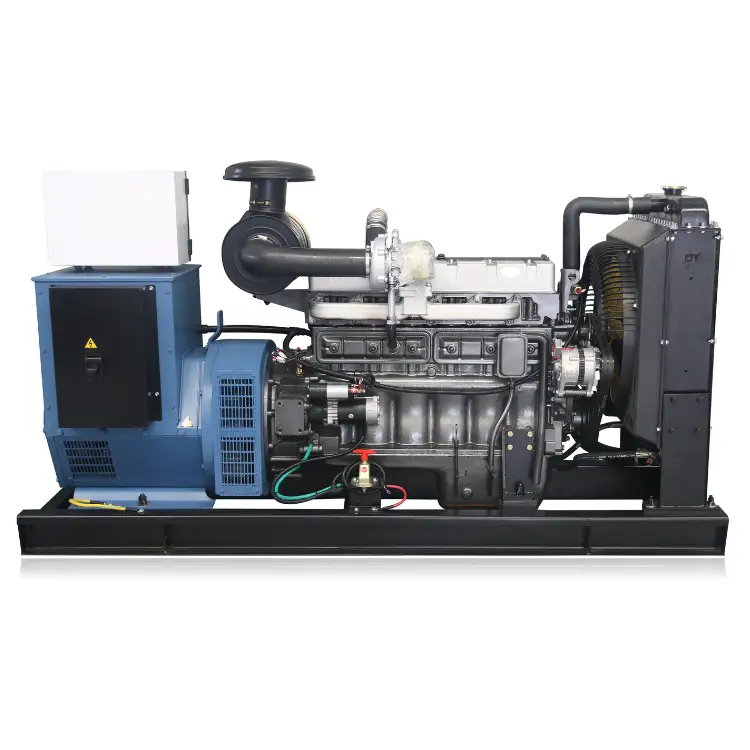Cummins Inc. has long been a cornerstone in the realm of energy solutions, leveraging its extensive history to carve out a significant presence in the home energy market. Renowned for its robust engineering and innovative products, Cummins offers a range of generators designed specifically for residential use, which have become synonymous with reliability and efficiency.
Cummins generators have been pivotal in transforming the landscape of home energy solutions. Their ability to provide consistent, reliable power has made them a popular choice among homeowners looking to ensure energy security. The house Cummins generator is particularly prized for its integration of cutting-edge technologies that optimize energy consumption and reduce operational costs.
The journey of Cummins in the residential sector began with the introduction of generators that were both accessible and effective for small-scale use. Over the years, these generators have evolved to feature more eco-friendly technologies, reduced noise levels, and improved fuel efficiency, making them ideal for residential settings. This evolution reflects Cummins’ commitment to environmental sustainability and its response to the growing demands of the modern homeowner.
Dr. Linda Shaw, a professor specializing in energy technologies at the Massachusetts Institute of Technology, notes, “Cummins has continuously adapted to the market’s needs by enhancing their generators with features that provide not only power but also efficiency and environmental benefits. This makes them a leader not just in industrial settings but also in homes.”
This introduction sets the stage for a deeper exploration into the specific types and benefits of house Cummins generators, guiding potential buyers through the complexities of choosing and maintaining a generator that best fits their energy needs.
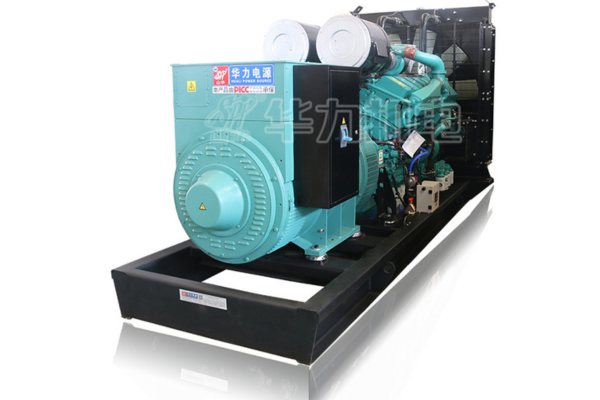
Types of House Cummins Generators Available
Cummins provides a diverse range of generator models designed to meet various home energy needs. These models are tailored to accommodate different sizes of residential properties, from small homes to large estates, ensuring that every homeowner can find a suitable power solution.
Description of Different Models Suited for Home Use
Cummins offers several types of generators tailored for residential use, including:
- QuietConnect Series: Known for their low noise levels, these generators are ideal for urban areas where noise regulations may be stringent. They range from 13 to 100 kW, making them suitable for most average-sized homes.
- PowerConnect Series: These models are more robust, ranging from 30 to 60 kW and are designed to handle larger power demands typically required by bigger homes or homes with higher energy consumption.
- Diesel Series: Although less common for residential use due to their larger size and higher power output, some homeowners may opt for these generators for maximum reliability and fuel efficiency, especially in rural areas where gas supply may be inconsistent.
Key Features and Specifications of Each Model
Each model in the Cummins residential generator lineup boasts specific features that cater to different needs:
- Fuel Efficiency: Most Cummins residential generators are optimized for low fuel consumption, which can significantly reduce operating costs over time.
- Remote Monitoring Capabilities: Advanced models come equipped with remote diagnostic features that allow homeowners to monitor and control their generator remotely via a smartphone app.
- Weather Resistance: Designed to withstand harsh environmental conditions, these generators feature robust enclosures that protect against weather and debris.
- Automatic Transfer Switches: Essential for seamless power transition, these switches automatically activate the generator during a power outage, ensuring continuous power without manual intervention.
Industry expert and electrical engineer Dr. Simon Bradley comments, “Cummins has invested heavily in technology that not only enhances the operational efficiency of their residential generators but also ensures they are easy to use and maintain. This makes them highly appealing to homeowners looking for reliable backup power solutions.”
Cummins’ commitment to providing versatile and high-quality generators is evident in their wide range of models, which are crafted to ensure that every homeowner can enjoy uninterrupted power tailored to their specific needs.
Benefits of Installing a Cummins Generator in Your Home
Installing a house Cummins generator provides numerous benefits that go beyond merely powering a home during electrical outages. These generators ensure continuous power supply, increase property value, and contribute to sustainable living practices.
Energy Independence and Reliability During Power Outages
One of the most compelling reasons to invest in a house Cummins generator is the assurance of uninterrupted power. In areas prone to severe weather or frequent power outages, a Cummins generator acts as a critical backup system that maintains the operation of essential appliances such as heating, cooling, refrigeration, and medical equipment.
- Consistent Power Supply: Cummins generators kick in automatically when a power outage is detected, thanks to their integrated automatic transfer switch. This seamless transition is crucial for homes with vital power needs.
- Reliability: Known for their robust construction and engineering, Cummins generators are incredibly reliable. They are designed to operate under various environmental conditions, ensuring that your home remains powered during critical times.
Environmental Impact and Fuel Efficiency Considerations
Cummins is committed to reducing the environmental impact of its products by continuously improving the fuel efficiency of its generators and reducing emissions.
- Fuel Efficiency: Modern house Cummins generators are designed to optimize fuel consumption, which not only saves money but also minimizes the carbon footprint associated with running a home generator.
- Lower Emissions: Cummins has developed generators that meet stringent environmental standards. These units produce fewer emissions than older models and are equipped with technologies that reduce the release of harmful pollutants.
Environmental sustainability expert Dr. Emily Carter states, “The environmental efficiency of Cummins generators marks a significant step towards more sustainable energy solutions in residential settings. By choosing these generators, homeowners contribute to a larger global effort to reduce carbon emissions.”
The benefits of installing a Cummins generator extend beyond simple convenience. They offer a reliable and efficient power source that enhances the resilience and sustainability of your home, making them a valuable addition to any property.
How to Choose the Right Cummins Generator for Your Home
Selecting the appropriate house Cummins generator involves understanding your specific energy needs and comparing the features of different generator models. Here’s a guide to help you make an informed decision that matches your household requirements.
Factors to Consider Based on Your Home’s Energy Needs
- Total Power Requirements: Calculate the total wattage needed by all the appliances and systems in your home that you want to run during an outage. Include essential items like refrigerators, heaters, and medical devices, as well as comfort appliances like air conditioners.
- Peak vs. Continuous Power: Understand the difference between peak power (the maximum power the generator can produce) and continuous power (the power it can produce for an extended period). Your generator should meet both your peak and continuous power needs.
- Scalability and Modularity: Some Cummins models offer the flexibility to add more modules later, allowing you to increase power capacity as your needs grow without replacing the entire system.
Comparison of Gas, Diesel, and Dual-Fuel Cummins Generators
- Fuel Type Availability and Cost: Gas generators typically require a natural gas connection, which might not be available everywhere. Diesel generators are more fuel-efficient and have a longer shelf life, making them suitable for infrequent use in remote locations. Dual-fuel generators offer flexibility in fuel choice and can switch between gas and diesel based on availability and cost.
- Operational Costs: While diesel generators may have higher fuel costs, they generally require less maintenance than gas generators. Consider the long-term operational costs associated with each type of generator, including fuel consumption rates, maintenance expenses, and the availability of fuel in your area.
- Environmental Impact: Gas generators are usually considered more environmentally friendly than diesel generators due to lower emissions. If environmental impact is a significant concern for you, a gas or dual-fuel generator might be the better choice.
- Noise Levels: Generally, gas generators operate more quietly than diesel generators, which is an essential factor if you live in a residential area with strict noise regulations.
Expert advice from an energy consultant can also be invaluable in this process. John Stevens, an energy solutions expert, advises, “Choosing the right generator isn’t just about the cost or the power output; it’s about understanding your home’s energy needs and how a generator integrates into your lifestyle. Energy efficiency, reliability, and fuel availability should all be considered to ensure that your generator is a good fit for your home.”
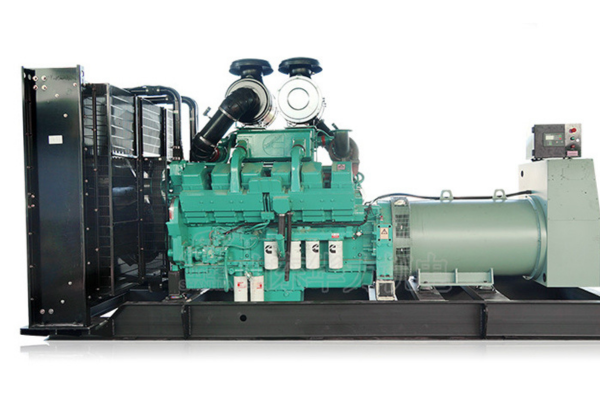
Installation Process of House Cummins Generators
Proper installation of a house Cummins generator is critical for safe operation and optimal performance. Here’s a step-by-step guide on how to install a Cummins generator along with tips for selecting the right location and preparing the site.
Step-by-Step Guide on Installing a Cummins Generator
- Site Selection: Choose a location that is dry, well-ventilated, and away from direct exposure to harsh weather conditions. The site should also comply with local codes and regulations regarding distance from the house and property lines.
- Foundation Preparation: Construct a concrete pad that is level and sturdy enough to support the weight of the generator. This pad should be raised to prevent water accumulation and reduce vibration.
- Unpacking and Positioning: Carefully remove the generator from its shipping packaging and place it on the prepared foundation using lifting tools as specified by the manufacturer.
- Electrical Connection: Hire a certified electrician to connect the generator to your home’s electrical system. This includes installing a transfer switch which is critical for safely transferring the power source from the utility to the generator during an outage.
- Fuel Connection: Connect the generator to the fuel source, whether it is natural gas, propane, or diesel. Ensure all connections are secure and leak-free.
- Testing and Commissioning: Once installed, the generator should be thoroughly tested under load to ensure it operates correctly. Check all settings and controls, and make adjustments as necessary.
Tips on Selecting the Right Location and Preparing the Site
- Compliance with Regulations: Ensure the location of your generator complies with local noise ordinances and emission regulations. This may affect where you can place your generator on your property.
- Accessibility: Choose a location that allows easy access for maintenance and repairs. There should be enough clearance around the generator for airflow and cooling.
- Safety Considerations: Keep the generator away from living areas and out of reach of children and pets. It should also be placed far from flammable materials and water sources.
Expert installer, Michael Brown, emphasizes the importance of professional involvement: “While some aspects of generator installation might seem straightforward, it’s essential to involve professionals, particularly when it comes to electrical and fuel connections, to ensure safety and compliance with all local codes.”
By following these detailed steps and tips, you can ensure that your house Cummins generator is installed safely and effectively, ready to provide reliable power whenever it is needed.
Maintenance Tips for Cummins Generators
Regular maintenance is crucial for ensuring the longevity and reliability of your house Cummins generator. Following a routine maintenance checklist not only helps in keeping the generator in optimal condition but also prevents unexpected failures that could leave your home without power.
Routine Maintenance Checklist to Ensure Optimal Performance
- Regular Inspections: Conduct a visual inspection of the generator each month to check for any signs of wear or damage. Look for leaks, check oil levels, and make sure all connections are tight.
- Oil and Filter Changes: Change the oil and replace oil filters, air filters, and fuel filters as recommended in the generator’s manual. This is typically after every 200 hours of operation or at least once a year if the generator is not used frequently.
- Battery Maintenance: Check the battery’s state of charge and clean the terminals. A failing battery is one of the most common reasons for generator start-up failures.
- Cooling System: Check the coolant level in the expansion tank regularly, especially before the onset of cold weather. Replace the coolant as per the manufacturer’s guidelines.
- Exercise the Generator: Run the generator periodically even if there is no power outage. This helps to keep the engine parts lubricated, prevents oxidation of electrical contacts, and helps to use up fuel before it deteriorates.
Common Troubleshooting Issues and How to Solve Them
- Failure to Start: This could be due to a variety of issues such as low oil levels, dead battery, or blocked fuel filters. Ensure that all fluids are at the recommended levels and that the battery is charged.
- Noise or Vibration: Unusual noises or vibrations could be a sign of loose parts, misalignment, or issues with the motor mounts. Check and tighten all bolts and review the generator’s alignment.
- Electrical Output Issues: If the generator is running but not producing power, the problem could be with the alternator or other electrical components. This typically requires professional service.
Michael Thompson, a certified generator technician, highlights, “The key to effective generator maintenance is consistency and attention to detail. Regular check-ups can preempt major issues, saving homeowners from costly repairs and inconvenient power outages.”
Adhering to these maintenance tips can significantly extend the life of your house Cummins generator, ensuring it provides reliable power and operates efficiently whenever you need it.
Cost Analysis and Return on Investment
Investing in a house Cummins generator involves considering the initial purchase price, ongoing operational costs, and the potential long-term savings. Understanding these financial aspects can help homeowners make a sound investment decision that maximizes their return on investment.
Initial Costs vs. Long-term Savings of Owning a Cummins Generator
- Initial Purchase and Installation Costs: The upfront cost of a Cummins generator includes the purchase price, which can vary depending on the model and capacity, and installation costs, which can be influenced by the complexity of the setup and local regulations.
- Operational Costs: These include the cost of fuel (natural gas, diesel, or propane), regular maintenance (such as oil changes, filter replacements, and professional servicing), and any repairs. Cummins generators are known for their fuel efficiency, which can help mitigate some of these costs.
- Energy Savings: During power outages, having a generator can prevent losses associated with food spoilage, basement flooding (if sump pumps stop working), and temporary relocation costs. Additionally, some Cummins generator models can be used to participate in local energy-saving programs where homeowners receive rebates for allowing local utilities to draw power from their generators during peak times.
Case Studies and Testimonials from Homeowners
Many homeowners report significant benefits from installing a house Cummins generator, not just in terms of emergency power supply but also regarding the overall value it adds to their property. Improved home valuation, coupled with the peace of mind knowing that power will be available when needed, often outweighs the initial financial output.
Financial advisor and energy consultant Sarah Johnson advises, “When considering a generator, it’s crucial to look beyond the initial expense. Calculate potential energy savings, emergency usage benefits, and even increased home marketability, which can all contribute to a positive return on investment.”
Long-term Benefits
- Increased Property Value: Homes equipped with permanent backup power solutions like a Cummins generator often see an increase in property value, making it a worthwhile investment for homeowners planning future sales.
- Reliability and Insurance Savings: Having a reliable power source can lower homeowners’ insurance rates in some areas prone to frequent power outages, resulting in additional savings.
Investing in a house Cummins generator is more than just a purchase; it’s a long-term investment into your home’s resilience, comfort, and efficiency. By understanding the full scope of costs and benefits, homeowners can ensure they make a decision that provides security and financial wisdom.
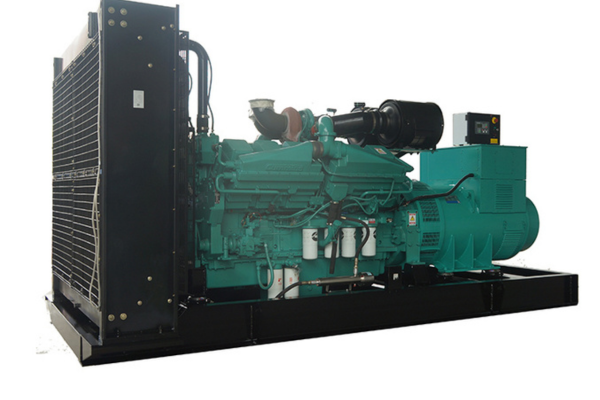
FAQs: Common Questions About House Cummins Generators
When deciding to invest in a house Cummins generator, homeowners often have a variety of questions regarding their operation, maintenance, and overall benefits. Here are answers to some of the most frequently asked questions to help clarify any uncertainties.
What is the expected lifespan of a Cummins generator?
House Cummins generators are built to last, with a typical lifespan ranging from 15 to 30 years depending on the model, usage, and maintenance. Regular service and proper installation can significantly extend their operational life.
How much maintenance does a Cummins generator require?
Cummins generators require periodic maintenance including oil and filter changes, battery inspections, and general operational checks. Most models come with a maintenance schedule that recommends checking certain components after every use or at fixed monthly intervals.
Can a Cummins generator power my entire home?
Yes, Cummins offers a range of generator sizes. The capacity needed to power your entire home depends on your specific power requirements. Smaller models may power essential circuits, while larger models can handle the full energy demand of a typical household.
Are Cummins generators noisy?
The noise level depends on the model and installation. Cummins has developed technologies to reduce noise, making them suitable for residential areas. Enclosures and other noise-reduction accessories are available to further mitigate sound emissions.
What fuel types do Cummins generators use?
House Cummins generators are available in various fuel types including diesel, natural gas, and propane. The choice of fuel type often depends on availability and personal preference for cost, efficiency, and environmental impact.
Is it worth installing a Cummins generator for occasional power outages?
Many homeowners find that the peace of mind and convenience provided by having a reliable power source during outages justifies the investment. Additionally, generators can increase property value and save on potential losses during extended power interruptions.
References
Cummins offers a variety of home standby generators known for their reliability and efficiency. The QuietConnect™ series, for instance, features sound-insulated enclosures that maintain noise levels at about 65dB, similar to a normal conversation, making them both quiet and powerful.
Cummins also provides a comprehensive approach to selecting and sizing home generators. They offer tools like a size calculator to help homeowners determine the best generator for their needs based on factors such as home size and essential power requirements.
In addition to home generators, Cummins is known for its wide range of power solutions, including portable and whole-house generators with capacities ranging from below 1000 kW to over 1000 kW for various residential, commercial, and industrial applications.


